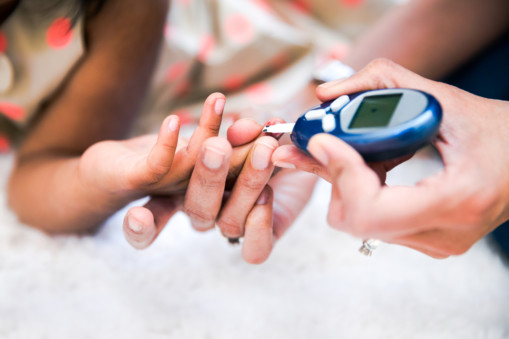
Dubai: While 19 per cent of Emiratis and 14.6 per cent of expatriates in Dubai are diabetic, a survey revealed on Monday that one in two adults with diabetes remain undiagnosed.
Presenting the survey results, Dr Fatheya Al Awadi, chair of Dubai Health Authority’s Diabetes Committee and head of the Endocrinology Department at Dubai Hospital, said the latest survey was conducted to identify pre-diabetics and undiagnosed cases with the aim of rolling out a preventive programme.
The survey found that undiagnosed diabetes cases comprise 11.3 per cent of Dubai’s population while those in the pre-diabetes stage (high risk of developing diabetes) comprise 16 per cent.
Among expatriates, pre-diabetes cases account for 15.5 per cent of the population.
The Dubai Diabetes Survey 2017 conducted by the Dubai Health Authority (DHA) and covered more than 5,000 families, both Emirati and expatriate adults above the age of 18, in cooperation with the Dubai Statistics Centre. It aims at working towards the National Health Agenda goal of reducing the incidence of diabetes in the UAE to 16.4 per cent from 19.3 per cent currently.
The survey conducted in 2009 and 2011 revealed that 15.2 per cent of Dubai’s population was diagnosed with diabetes. Among Emiratis, diagnosed cases stood at 11.6 per cent of the population.
Dr Al Awadi said: “While it is imperative to provide a proper medical programme and lifestyle change to those already diagnosed with diabetes, it is even more important to stem the onset of diabetes in those who are on borderline and high risk.”
Elaborating on pre-diabetes risk, Dr Al Awadi added: Those with an HbA1C [glycated haemoglobin] between 5.7 to 6.4 are pre-diabetic and it is these people we must work on with a very structured programme that will involve educating and empowering them about diet, nutrition, physical exercise, importance of cutting out direct sugars and also appointing a wellness coach for them to regularly monitor their progress.”
In order to determine all the pre-diabetics, the DHA has plans to come out with a Diabetes Risk Calculator.
Dr Mohammad Hassanein, consultant endocrinologist of Dubai Hospital and member of the survey committee explained how the calculator would work. “There are certain health parameters such as obesity, family history of diabetes, blood pressure, insulin resistance that would account for high risk factors. We will determine all the parameters and these will be made available to Dubai residents as a smart application where they can take a test and see if they fall in the high risk category. This calculator is yet to be a reality but once we have all the results and have validated all parameters we will make such a thing available to people .”
Dr Al Awadi added that the DHA’s Electronic Medical Record System was helping them collate facts and details about the health of residents.
“Very soon we will be able to create a disease registry based on these authentic figures that are validated in real time. The registry will give us exact statistics of how many diabetics, how many high risk and how many pre-diabetic and this will help us combat this challenge better.”
Humaid Al Qutami, Chairman of the Board and Director-General of the DHA, said the DHA had adopted a responsible and committed strategy towards reduction of the incidence of diabetes, which stands at 415 million worldwide. According to the International Diabetes Federation, it is slated to affect 642 million people worldwide by 2040.
He added that the DHA had adopted many preventive and treatment programmes to fight diabetes, in addition to providing the best health services to diabetic patients through state-of-the-art services, the latest medications and quality healthcare. “We aim to reduce diabetes incidence to 16.4 per cent throughout UAE as per the National Health Agenda 2021,” he added.












